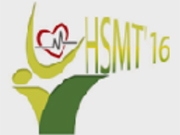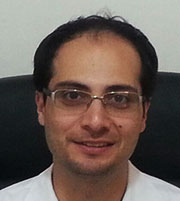-
Details
-
Written by Sousan Valizadeh, Hossein Feizalahzadeh, Mina Avari, Faza Virani
-
Parent Category: Year 2016, Volume 8
-
Category: Volume 8, Issue 7, July 2016
-
Hits: 4265
Introduction: Medication errors are risk factors for patients’ health and may have irrecoverable effects. These errors include medication miscalculations by nurses and nursing students. This study aimed to design a multimedia application in the field of education for drug calculations in order to compare its effectiveness with the lecture method.
Methods: This study selected 82 nursing students of Tabriz University of Medical Sciences in their second and third semesters in 2015. They were pre-tested by a researcher-made multiple-choice questionnaire on their knowledge of drug administration principles and ability to carry out medicinal calculations before training and were then divided through a random block design into two groups of intervention (education with designed software) and control (lecturing) based on the mean grade of previous semesters and the pre-test score. The knowledge and ability post-test was performed using the same questions after 4 weeks of training, and the data were analyzed with IBM SPSS 20 using independent samples t-test, paired-samples t-test, and ANCOVA.
Results: Drug calculation ability significantly increased after training in both the control and experimental groups (p<0.05). However, no significant difference emerged between the two groups in terms of medicinal calculation ability after training (p>0.05). The results showed that both training methods had no significant effect on study participants’ knowledge of medicinal principles (p>0.05), whereas the score of knowledge of medicinal principles in the control group increased non-significantly. The results of the Kolmogorov-Smirnov test show that, since p>0.05, the data in the variable of knowledge of drug prescription principles and ability of medicinal calculations had a normal distribution.
Conclusion: The use of educational software has no significant effect on nursing students’ drug knowledge or medicinal calculation ability. However, an e-learning program can reduce the lecture time and cost of repeated topics, such as medication, suggesting that it can be an effective component in nurse education programs.
Keywords: Medication calculation, Nursing students, Multimedia software, Lecture, Principles of drug administration
NikeNike
The most recent editorial (June 2021)
Ethics of Publishing Case Reports: Do We Need Ethics Approval and Patient Consent?
An editorial by Dr. Mehrdad Jalalian
Read more.

The worldwide spread of COVID-19 as an emerging, rapidly evolving situation, and the dramatic need of urgent medicine or vaccine, has rapidly brought new hypotheses for pathophysiology and potential medicinal agents to the fore. It is crucial that the research community provide a way to publish this research in a timely manner.
To contribute to this important public health discussion, the Electronic Physician Journal is excited to announce a fast-track procedure to help researchers publish their articles on COVID-19 related subjects that fall under the broad definition of public health, internal medicine, and pharmacology. We are especially welcome to all hypotheses about the pathological basis of the COVID-19 infection and the possible characteristics of potential medicine and vaccine. Submit your manuscript here
Our previous editorial (June 2020)
Lessons from COVID-19 pandemic and the Morocco’s success story.
An editorial by Dr. Benksim Abdelhafid (Morocco)
Read more.

The 6th World Conference on Research Integrity (WCRI) is to be held on June 2-5, 2019 in Hong Kong.
The WCRI is the largest and most significant international conference on research integrity. Since the first conference in Lisbon in 2007, it has given researchers, teachers, funding agencies, government officials, journal editors, senior administrators, and research students opportunities to share experiences and to discuss and promote integrity in research. Read more:

TDR Clinical Research and Development Fellowships
Call for applications
Deadline for submission: 7 March 2019, 16:00 (GMT)
TDR provides fellowships for early- to mid-career researchers and clinical trial staff (e.g. clinicians, pharmacists, medical statisticians, data managers, other health researchers) in low- and middle-income countries (LMICs) to learn how to conduct clinical trials. Read more:

Meta-Analysis Workshops in New York, USA, and London, UK, in April and May 2019
Don't miss this exceptional opportunity to learn how to perform and report a Meta-analysis correctly. Two Meta-analysis workshops are organized in April and May 2019 by Dr. Michael Borenstein in New York, USA (April 08-10, 2019) and London, UK (May 27-29).

About the Instructor
Dr. Michael Borenstein, one of the authors of Introduction to Meta-Analysis, is widely recognized for his ability to make statistical concepts accessible to researchers as well as to statisticians. He has lectured widely on meta-analysis, including at the NIH, CDC, and FDA. Read more:

























